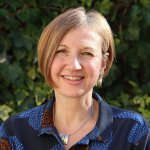Dual expert carers
Overview
Older people living with frailty often experience uncertainty about how their health will change over time, making it difficult to ensure they get the right help at the right time. Family carers have been identified as important for accessing and organising this help.
This study has two aims. The first is to understand dual expert family carers’ experiences and consequent decision-making processes at a point of change in the condition of an older person living with frailty. The second aim is to facilitate the co-design of a set of guiding principles by participants, to inform a prototype tool for family carers to assist decision-making. This involved participants taking part in one-to-one interviews followed by participation in a facilitated online focus group.
If you wish to find out more about this study, please contact Richard Green.
Resources
This resource was created with participants from the Dual Experts study and refined through a co-production session with unpaid carers and unpaid carer representatives across London and the South East, to share practical tips from experienced unpaid carers for older people. We hope that this resource will support unpaid carers to be proactive in considering some of the things that can arise when caring for an older person and ways they might approach these.
Team
Study team

Professor Caroline Nicholson
Professor of Palliative Care and Ageing
Biography
Caroline is a Clinical Academic Nurse and her research forwards understanding and care for older people living with complex needs. She is particularly interested in the transitions that occurs in the last phase of life. Caroline qualified as a Registered Nurse at St Bartholomew’s Hospital London. She worked as a specialist Palliative Care Nurse before undertaking a combined BSc (Hons) in Community Nursing DN/HV Certs at King’s College London. She went on to an MSc in Medical Anthropology at Brunel University London before completing her PhD at City University, London in 2009. She is a FHEA from the Institute of Education and holds a diploma in psycho-dynamic approaches to old age from the Tavistock and Portman NHS Foundation Trust, London
Caroline is a HEE/NIHR Senior Clinical Academic Lecturer, working between the School of Health Sciences at Surrey University and St Christopher’s Hospice, London. She is passionate in her belief that everyone should have access to the best care and support in the final years of their life. She has a long-held interest in the experiences and palliative care needs of older people and their families and is co-lead in End of life Care for the British Geriatrics Society.
Caroline studies the experiences and care of older people living with complex needs across care settings, to develop interventions which equally value quality of life with quantity of years in old age. She has a long-held interest in the experience of older people living with frailty, and their capabilities as well as their current and future vulnerabilities. Her work also includes the development of care services and a workforce that can recognize, facilitate and enhance the processes and outcomes of high-quality palliative and supportive care. Caroline is committed to building the next generation of clinical academics and is an NIHR Nurse Training Advocate . Research expertise includes participatory action research, narrative research, mixed method research and complex intervention development.

Dr Richard Green
Surrey Future Fellow
Biography
Richard was awarded a prestigious Surrey Future Fellowship in April 2023 to develop an ambitious interdisciplinary programme of research focused on understanding and addressing complex challenges in health and social care using artificial intelligence, systems thinking, and simulation methods. His current work explores how agent-based modelling (ABM) and participatory approaches can be used to investigate under-examined areas of care provision and access, primary, community, palliative, unpaid, and integrated care contexts.
Richard’s research vision is shaped by a commitment to advancing qualitative and mixed-method research that accounts for the complexity of care systems and the lived experiences of older adults and their caregivers. He is particularly interested in how simulation methods can support both research and policy.
Richard completed a BSc in Criminology and Sociology at Royal Holloway University and then an MSc in Social Research Methods at the University of Surrey, before completing his PhD in Sociology in partnership with both universities on an ESRC studentship. His PhD explored men's experiences following treatment for prostate cancer in a qualitative interviewing study. Before joining the PALLUP study, Richard worked at the Office for National Statistics as a Senior Research Officer, working on facilitating research access to secure data for research that serves the public good.
Research groups and centres
Our research is supported by research groups and centres of excellence.